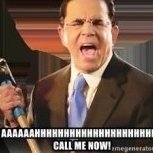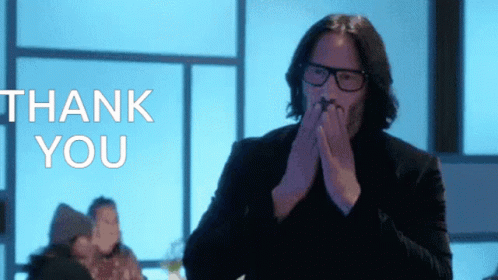-
Posts
3496 -
Joined
-
Last visited
Content Type
Profiles
Forums
Store
Downloads
Recruiting - 2020
2019-2020 Football Season
Football
Entertainment
Sports
News and Business
Cloak Room
Transfer Portal
Recruiting
Events
Posts posted by Thetexashammer
-
-
On 11/29/2023 at 8:09 PM, royiv said:
First Crackdonald's and now the Greyhound station. Where are people going to go to get their drugs and videos of bum fights?
Is nothing sacred?
-
2 hours ago, mdmost said:
Man, it's just crazy to think this is an actual reality. And that one massive choice to play Alabama in a home and home was the fuel this team needed. Just like Ohio State was the spark that lit the fuse for the 05 team. I love that we get at least another month to discuss meaningful college football in Austin. It's been far too long.
It feels like we are stealing the other kids' lunch money.
-
31 minutes ago, Pato del Muerto said:
It’s HCU now. Damn DEI initiatives.
Does is still suck?
Dominick McKinley needs to make a business decision.
-
I, like many in college football, boo Corrigan.
Just now, MisterP said:I am here. I was wrong.
As long as you bring that avatar, we all good bro.
-
 1
1
-
 1
1
-
-
Overall, Washington shows a Team Talent Level of 26th in the country, with zero five star players. Obviously Odunze and Penix are playing at the five star level, but so are a bunch of our guys.
When both teams are equally motivated and prepared, most often talent level wins. Add to that, both our offensive and defensive lines are probably a lot more stout than Washington's.
-
Guys, everything I said was complete bullshit. Can we still be bros?
-CTJ, probably

-
 1
1
-
 1
1
-
-
- Popular Post
I just want to thank the referees from out game against the University of Houston. Without you guys, and your tremendous ball spotting skills, none of this could have happened.
I want to thank Chris Tennant, the KSU kicker, for missing a point after and allowing us to win that game.
I want to thank OU, for losing to Kansas, and then losing to the Cowboys. Love you so much, Brent!!!
Thank you Aggies, for sucking so much. Your failures are a lesson to all of us about what not to do.
But more than that, I want to thank all the little mistakes people made. The Iowa State gamblers, the Fighting Jimbo's who make recruiting easy, the Baylor Rapists, Auburn herpaderping to lose to Alabama. Thank you little people, thank you. Without your dumb mistakes none of this would have been possible.

-
 4
4
-
 7
7
-
They just declared a game MVP, and I don't think I heard his name the entire game.
-
 4
4
-
-
So we play Washington in the Sugar Bowl.
-
 1
1
-
 1
1
-
-
2 minutes ago, Dnaguy said:
Alabama must be mad
Why? They are in.
-
 1
1
-
-
2 minutes ago, Valmy77 said:
No relation.

-
 1
1
-
-
-
1 minute ago, Mo Horn said:
I don't trust the committee to not put an undefeated conference campion in
They needed a reason to put Bama in. FSU just gave them one.
-
 1
1
-
-
1 minute ago, Valmy77 said:
Ok go get another field goal.
Holy shit this killed me.
-
2 minutes ago, Mo Horn said:
Fsu is going to win this, get in because they are an undefeated conference champion, and then lose by more than 50 points in the playoffs.
Nope. They are out.
-
What in the hell was that?
-
We are playing #2 Washington.
-
There's no way these FSU losers get in. They suck. Game over.
-
1 minute ago, ATXbronco said:
bloating
If the gloves don't fit, you must have big tits.
-
 1
1
-
-
-
Alabama fans are really enjoying this. Fucking Nick Saban, he gets all the breaks.
-
After it ends 0-0 and realize nobody can score, they can settle it by throwing footballs into Dr. Pepper cans.
-
 1
1
-
-
In 2007, Arkansas just went full time Wildcat with Darren McFadden, and they beat the 2007 MNC team LSU with that. That's where this ends up, forget the forward pass, just wildcat every down.
-
 1
1
-
-
1 minute ago, Neonmoon said:
This is just Bad Football
New band name?
-
 1
1
-








Cryptocurrencies (Bitcoin, Ethereum, Litecoin, etc.)
in Business and Markets
Posted
Somebody, and I wish it were me, is going to set up peer to peer wagering, meaning the house never wins. That company is going to be worth billions.